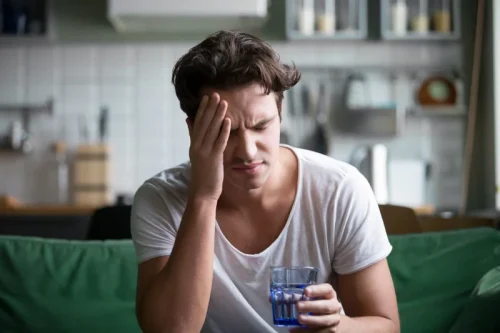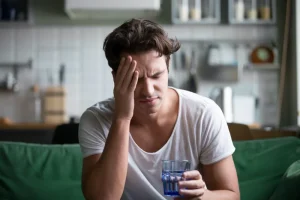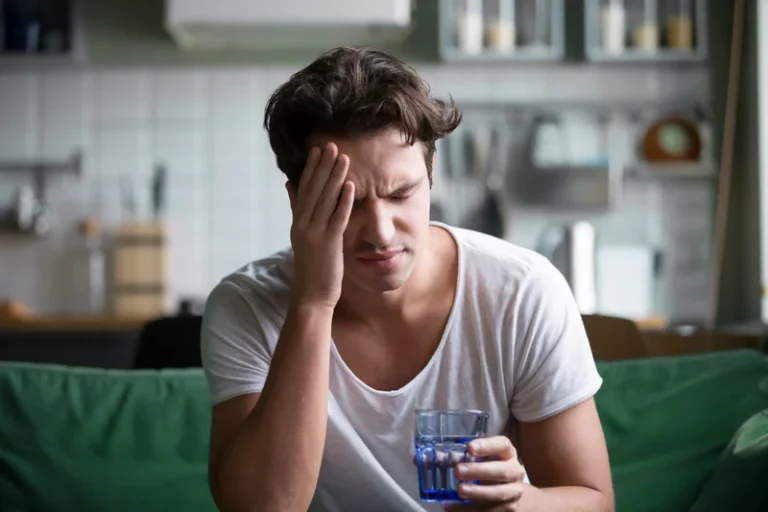
About 30% of people who experience substance use disorder also experience another mental health condition. Alcohol consumption can trigger panic attacks through direct physiological effects and withdrawal symptoms. Both acute intoxication and cessation of prolonged drinking may lead to increased anxiety and panic episodes in susceptible individuals. We’ve covered a lot about the connection between alcohol and panic attacks. Remember, it’s common to experience anxiety after drinking, sometimes even a full-blown panic attack.
The Role Alcohol plays on Anxiety
Consuming alcohol can trigger panic attacks, while others experience extreme nervousness after drinking. People with generalized anxiety or panic disorder are more likely to develop unhealthy drinking behaviors around the same time that they start having symptoms of their anxiety-related mental health condition. The onset of symptoms related to social anxiety disorder and agoraphobia can be a trigger for some people to develop unhealthy relationships with alcohol. In some cases, a person who drinks alcohol to relieve feelings of anxiety might end up drinking more because they expect alcohol to provide a certain amount of relief from their anxiety symptoms.
Learn about the conditions we treat
The effects of substance abuse can cause increased anxiety, especially if alcohol is suddenly unavailable or if the intake amount is drastically reduced. Many people experience sleep disturbances after a night of heavy drinking. Without restful sleep, you might experience exacerbated anxiety levels, which can quickly become a vicious cycle of anxiety where poor sleep perpetuates anxiety and vice versa. Drinking more alcohol will only worsen the situation and intensify alcohol withdrawal symptoms. If you’re frequently getting panic attacks after consuming alcohol, it’s important to take a step back and look at your drinking. If you’ve been unable to stop, despite the regular panic attacks that alcohol has caused, it’s recommended that you seek professional help to deal with the issue.
- However, frequent panic attacks may lead to lifestyle changes, such as avoiding certain situations, which can impact mental health and daily functioning.
- If you’ve been drinking alcohol excessively, which has been leading to panic attacks, it’s highly recommended that you reach out for help to deal with your drinking as soon as possible.
- Anxiety disorders also may have a particularly detrimental impact on alcohol-focused treatment for women.
- It disrupts your sleep cycles, preventing you from getting restful, deep sleep.
- Although there are no notable neurological or physiological changes that have caused your body to be less functional, your faulty perception can convince you that you lack energy to complete basic tasks.
- If you have a history of anxiety or mental disorders, make sure to share this with your healthcare provider so you know how alcohol or other substances may affect you differently.
Seek professional counseling
Here, you will also learn how to live without alcohol, manage anxiety healthily and live a sober life free of pain and suffering. Often alcohol intensifies the initial state of the drinker, so if you are feeling particularly anxious, you can expect this to heighten during your drinking. The effects of alcohol can negatively impact hormones, brain function, and sleep.

Why Do You Get Anxiety After Drinking?
Social withdrawal is not uncommon, as people may isolate themselves to manage their symptoms. Increased alcohol consumption to self-medicate anxiety can create a harmful cycle, worsening symptoms over time. As the effects of alcohol wear off, individuals may experience heightened anxiety, creating a cycle of dependence. This pattern can make it challenging to break free from using alcohol as a coping mechanism.
What is the Role of a Psychiatrist in Addiction Treatment?
- This is sometimes called “hangxiety.” If you’re struggling with alcohol withdrawal, please reach out to a healthcare professional.
- Alcohol-induced panic attacks, however, are directly related to alcohol consumption.
- Proper hydration is essential for managing alcohol-induced anxiety.
- When we reach for alcohol in an effort to calm the symptoms of anxiety and panic, we can become trapped in a vicious cycle that may eventually lead to a physical or psychological addiction.
In today’s world, mental health conditions are understood far better than in the past, and some of them have become much easier to diagnose. According to data from the National Institute of Mental Health, somewhere between 1% and 3% of the global population suffer… Your situation may seem hopeless at first when suffering from an alcohol-induced panic attack. The information above can help ensure you take the appropriate course of action. According to the National Institute of Mental Health, it is estimated that approximately 2.7% of adults in the United States suffer from panic disorder. Suddenly decreasing or stopping your alcohol intake can cause your body to go into withdrawal, potentially leading to a number of dangerous symptoms including hallucinations, dehydration and seizures.

If you or someone you love is experiencing alcohol related anxiety, there are ways to cope. The fact that all these physiological changes can cause symptoms so similar to those of a panic attack can trick your brain into having a real one. The two often create a cycle that’s hard to break, whereby the onset of one is a trigger for the other. Anxiety is different to depression, but they can sometimes go together – feeling anxious and worrying constantly can make you feel low.

- Typically, he offers this in conjunction with supportive therapy, motivational interviewing, and/or cognitive behavioral therapy in 30-minute follow-up visits.
- Anxiety, especially generalized anxiety, and alcohol have a complicated connection….
- If you struggle with panic attacks and feelings of anxiety, it is important to understand how alcohol can affect your mental health and potentially make these symptoms worse.
- Remember, having panic attacks is not a weakness; it’s a condition which may need professional treatment.
- The results are a full-blown panic attack, which can be very frightening.
- Even after the worst is over, you might still feel a little anxious or on edge.
We’ll take a closer look at how alcohol and mental health connect and what you can do to manage those anxious feelings. Knowing more about alcohol-induced anxiety symptoms and what causes them is the first step to feeling better. We’ll also discuss how to stop panic attacks after drinking and how understanding your relationship with alcohol and panic disorder can make a difference. You may feel more comfortable in social situations or in new surroundings that would alcohol-induced panic attack ordinarily trigger stress and anxiety. Unfortunately, as the alcohol levels wear off, there is a decrease in the inhibiting effects of the neurotransmitters, and the brain interprets the shift as threatening.
Leave a Reply